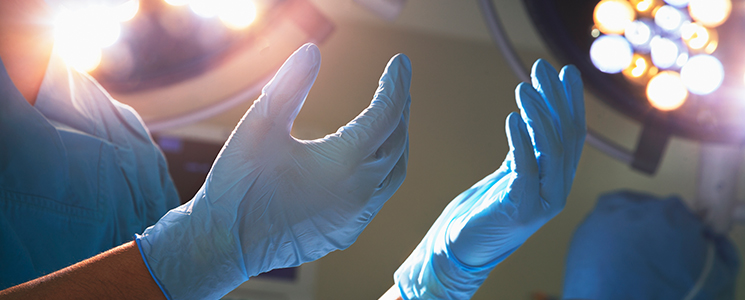Laparoscopic Abdominal Wall Reconstruction for Incisional Hernia Repair in NYC
What is laparoscopic abdominal wall reconstruction?
When a hernia occurs, there is a defect in the muscles and fascia of the abdominal wall. Organ structures leave their normal domain and lie under the skin. To repair a hernia and prevent future hernias, surgery is required to repair and strengthen that portion of the abdominal wall. Laparoscopic hernia repair is a minimally invasive procedure that uses very small incisions in the abdomen to locate and repair abdominal weakening. Repairing weak portions of the abdomen can not only correct an existing hernia, but it can also prevent future recurrent hernias, strengthen one’s core, and lower the chances of suffering from a serious health condition, such as a strangulated hernia.
If you require abdominal wall reconstruction for hernia repair, schedule a consultation with Dr. Mark Reiner in NYC. Dr. Reiner is a world-renowned hernia repair surgeon, having performed over 2,500 successful hernia procedures during his career. Dr. Reiner can repair your abdominal wall using minimally-invasive techniques to prevent future hernias with minimal scarring and a short recovery period.
Why is laparoscopic abdominal wall reconstruction performed?
Any patient with an abdominal wall defect or hernia may be a candidate for a laparoscopic repair. The repair will help prevent further herniation, or an enlarging of the abdominal wall defect, and prevent incarceration and potential strangulation. While it may not be recommended for all incisional hernias, in patients where the procedure is indicated, it will shorten the recovery period and cause less post-operative pain.
What does laparoscopic abdominal wall reconstruction involve?
Before undergoing laparoscopic abdominal wall repair, you will be given general anesthesia to prevent any discomfort. During the operation, your surgeon will make several small incisions in your abdomen, through which a small tube-like camera (laparoscope) is inserted. Using this device, your surgeon is able to view your internal organs, as well as locate the hernia and weakening in your abdominal wall. Using a reinforcing material, such as mesh, your surgeon will repair the damaged part of the herniated abdominal wall to prevent future hernias.
After the procedure, patients with small abdominal wall defects will usually experience minimal discomfort and the procedure may be done on an outpatient basis. Large defect repairs will be more uncomfortable and may require hospitalization for a day or two for pain control. However, most of these patients will notice a dramatic decrease in their discomfort after post-operative day 5. Recovery time and return to work and full unrestricted activity will be much shorter with laparoscopic abdominal wall repair when compared to open surgery.
What are the advantages of undergoing minimally invasive abdominal wall reconstruction with Dr. Mark Reiner?
Choosing to undergo minimally invasive abdominal wall reconstruction with Dr. Reiner can provide the following benefits:
- Minimally invasive
- Minimal scarring
- Shorter recovery period
- Quicker return to full unrestricted activity
- Reduced post-operative pain when compared to an open procedure
- Lowered chance of repeat hernias or strangulated hernias
If you are suffering from a weak abdominal wall, you may be a good candidate for minimally invasive abdominal wall reconstruction surgery. Dr. Mark Reiner is a top surgeon in the field of minimally invasive hernia repair, and has performed thousands of successful hernia operations. Contact Dr. Reiner today by calling 212.879.6677 or filling out the form on this page.

